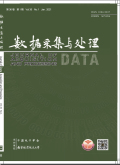数据采集与处理2024,Vol.39Issue(5):1214-1227,14.DOI:10.16337/j.1004-9037.2024.05.013
基于双向融合纹理和深度信息的目标位姿检测
Target Position Detection Based on Bidirectional Fusion of Texture and Depth Information
摘要
Abstract
Aiming at the problem of how to obtain accurate positional information of objects in unstructured scenes by depth cameras with limited hardware device resources,a target position detection method based on bidirectional fusion of texture and depth information is proposed.In the learning phase,two networks adopt the full-flow bidirectional fusion(FFB6D)module,the texture information extraction part introduces the lightweight Ghost module to reduce the computation of the network,and adds the attention mechanism CBAM that can enhance useful features,and the depth information extraction part extends the local features and multilevel feature fusion to obtain more comprehensive features.In the output stage,in order to improve the efficiency,the instance semantic segmentation results are utilized to filter background points,then 3D keypoint detection is performed,and finally the position information is obtained by the least square fitting algorithm.Validations are carried out on LINEMOD,Occlusion LINEMOD and YCB-Video public datasets,whose accuracies reach 99.8%,66.3%and 94%,respectively,and the amount of parameters is reduced by 31%,showing that the improved position estimation method can canreduce the number of parameters while guaranteeing the accuracy.关键词
双向融合/Ghost/注意力机制/深度学习/位姿估计Key words
bidirectional fusion/Ghost/attention mechanism/deep learning/position estimation分类
计算机与自动化引用本文复制引用
张亚炜,付东翔..基于双向融合纹理和深度信息的目标位姿检测[J].数据采集与处理,2024,39(5):1214-1227,14.基金项目
国家自然科学基金(61703277). (61703277)

